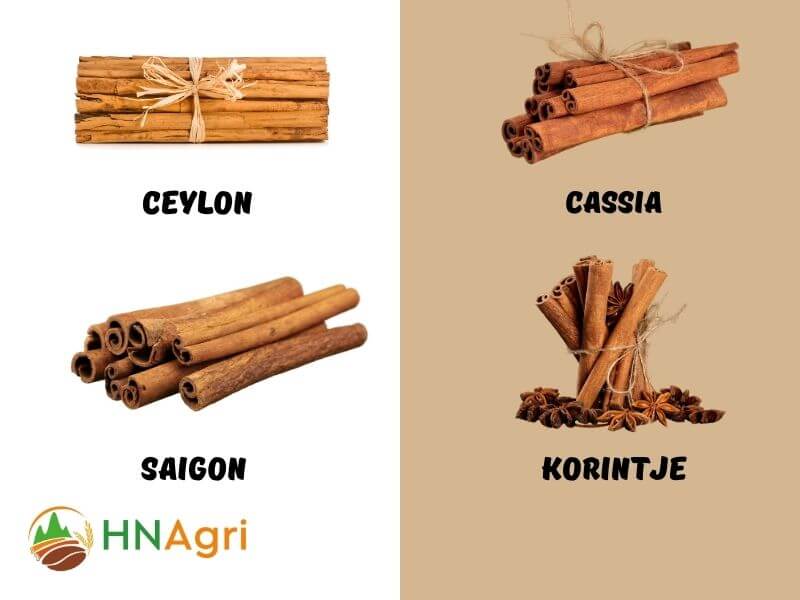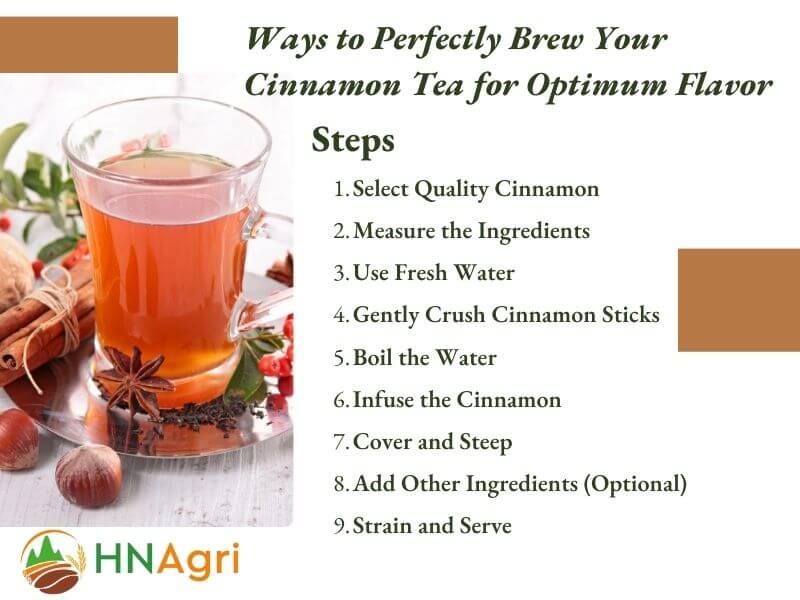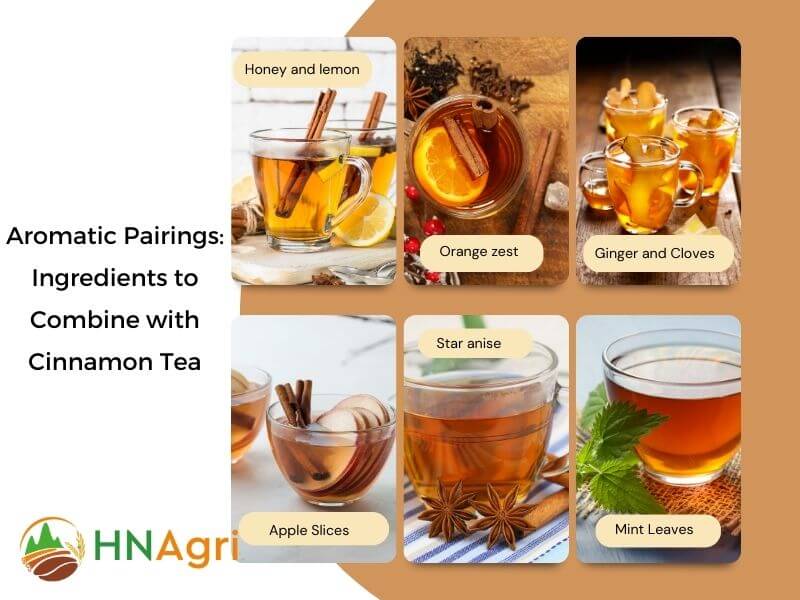Step into a world of aromatic bliss with our enticing exploration of Cinnamon Tea—a warm and comforting elixir that promises to awaken your senses and wrap you in a soothing embrace. Uncover the secrets behind its rich aroma and unique flavors, as this delightful cup becomes your trusted source of tranquility and relaxation in the coziest of moments.
Table of contents
Introduction to the Delights of Cinnamon Tea
Drinking cinnamon tea brings huge benefits for your daily wellness routine that you haven’t known.
Health Benefits of Drinking Cinnamon Tea
Cinnamon tea offers a myriad of health benefits, making it a delightful and beneficial addition to your daily routine. Here are some of the key health benefits of using cinnamon:
- Rich in Antioxidants: Cinnamon is loaded with powerful antioxidants that help combat free radicals in the body, reducing oxidative stress and supporting overall cellular health.
- Anti-Inflammatory Properties: The active compounds in cinnamon, such as cinnamaldehyde, have anti-inflammatory effects, which may help alleviate inflammation-related conditions and promote a healthier immune system.
- Blood Sugar Regulation: Cinnamon has been studied for its ability to improve insulin sensitivity and help regulate blood sugar levels.
- Heart Health: Regular consumption of cinnamon tea may support heart health by lowering cholesterol levels, reducing blood pressure, and improving overall cardiovascular function.
- Digestive Aid: Cinnamon tea can aid in digestion by reducing bloating, gas, and indigestion. It also has carminative properties, which help soothe an upset stomach.
- Weight Management: Tea with cinnamon may assist in weight management by promoting feelings of fullness and curbing cravings, which can help in controlling calorie intake.
- Enhanced Brain Function: Some studies suggest that cinnamon’s antioxidants may protect brain cells from oxidative stress, potentially benefiting cognitive function and memory.
- Menstrual Pain Relief: Cinnamon tea has been used traditionally to alleviate menstrual pain and discomfort, thanks to its anti-inflammatory and muscle-relaxing effects.

Health Benefits of Drinking Cinnamon Tea
Different Varieties of Cinnamon Tea and Their Unique Features
Cinnamon tea comes in various varieties, each with its unique features and characteristics, including:
- Ceylon Cinnamon (True Cinnamon): Ceylon cinnamon, also known as true cinnamon, is considered the premium variety of cinnamon. It has a delicate, sweet, and citrusy flavor profile, with a light brown color. This variety of cinnamon tea offers a subtle and refined taste
- Cassia Cinnamon (Chinese Cinnamon): Cassia cinnamon is more commonly found in the market and is often used to make cinnamon tea. It has a stronger and more robust flavor compared to Ceylon cinnamon, with a darker reddish-brown color.
- Saigon Cinnamon (Vietnamese Cinnamon): Saigon cinnamon, also known as Vietnamese cinnamon, is a variety of cassia cinnamon and is highly prized for its intense and rich flavor. It has a high concentration of essential oils, which contributes to its strong and sweet taste. Saigon cinnamon is often considered one of the best varieties for making flavorful and aromatic cinnamon drinking.
- Indonesian Cinnamon (Korintje Cinnamon): Indonesian cinnamon, also known as Korintje cinnamon, is another type of cassia cinnamon. It has a slightly milder taste compared to Saigon cinnamon but is still robust and flavorful. Indonesian cinnamon is commonly used in cinnamon teas and offers a pleasant and warming flavor profile.

Different Varieties of Cinnamon Tea and Their Unique Features
Ways to Perfectly Brew Your Cinnamon Tea for Optimum Flavor
To achieve the optimum flavor and aroma from your cinnamon tea, follow these simple steps to brew it perfectly:
- Select Quality Cinnamon: Start with high-quality cinnamon sticks or ground cinnamon. Opt for Ceylon cinnamon if available, as it offers a delicate and sweet flavor with lower levels of coumarin.
- Measure the Ingredients: Use the right proportion of cinnamon to water. For one cup of water, use 1-2 cinnamon sticks or 1 teaspoon of ground cinnamon, depending on your preference for strength.
- Use Fresh Water: Always use fresh, cold water to brew your cinnamon tea. Avoid using water that has been sitting in the kettle or reheated as it may affect the taste.
- Gently Crush Cinnamon Sticks: If using cinnamon stick, gently crush them with a mortar and pestle to release more flavor. This step is optional but can enhance the infusion process.
- Boil the Water: Heat the water in a pot or kettle until it comes to a rolling boil. Avoid over-boiling, as this can cause the water to lose its oxygen content and impact the tea’s taste.
- Infuse the Cinnamon: Add the cinnamon sticks or ground cinnamon to the boiling water. Stir gently and let it simmer for about 5-10 minutes. If you prefer a stronger flavor, you can simmer for a bit longer.
- Cover and Steep: Turn off the heat and cover the pot or kettle with a lid. Let the cinnamon steep in the hot water for an additional 5-10 minutes. This allows the flavors to fully develop.
- Add Other Ingredients (Optional): You can enhance the flavor of your cinnamon tea by adding other ingredients like honey, lemon, or ginger for a delightful twist.
- Strain and Serve: If using cinnamon sticks, remove them from the water using a spoon or strainer. If using ground cinnamon, you may want to strain the tea through a fine-mesh strainer to remove any residue. Pour the brewed cinnamon tea into your cup and enjoy!

Aromatic Pairings: Ingredients to Combine with Cinnamon Tea
Cinnamon tea’s aromatic and flavorful profile makes it a versatile base for various ingredient pairings, such as:
- Honey and Lemon: Add a drizzle of honey and a splash of fresh lemon juice to your cinnamon tea for a sweet and tangy twist. The honey complements the warm cinnamon notes, while the lemon brightens the overall flavor.
- Orange Zest: Infuse your cinnamon drinking with the zest of fresh orange peel. The citrusy aroma of orange pairs beautifully with the spiciness of cinnamon, creating a refreshing and aromatic brew.
- Ginger and Cloves: For an extra kick of warmth and depth, add a few slices of fresh ginger and a couple of cloves to your cinnamon tea. These spices create a delightful blend of comforting flavors.
- Apple Slices: Infuse your cinnamon tea with thinly sliced apples for a delicious autumn-inspired drink. The sweetness of the apple complements the warmth of cinnamon.
- Star Anise: Add a star anise to your cinnamon tea for a unique and exotic flavor profile. The anise‘s licorice-like notes harmonize beautifully with the spiciness of cinnamon.
- Mint Leaves: For a refreshing twist, garnish your cinnamon tea with a few fresh mint leaves. The mint’s cool and invigorating taste provides a delightful contrast to the warm and comforting cinnamon.

Ingredients to Combine with Cinnamon Tea
Frequently Asked Questions about Cinnamon Tea
There are many questions related to cinnamon tea and how to apply it into daily life. This part will help you answer.
Q: Is Cinnamon Tea Safe to Drink Daily?
A: Yes, cinnamon tea is generally safe to drink daily in moderation. However, it’s essential to be mindful of the type of cinnamon used. Ceylon cinnamon has lower levels of coumarin, making it a safer choice for daily consumption. Cassia cinnamon, on the other hand, contains higher coumarin levels and should be consumed in moderation to avoid potential side effects.
Q: Can I Drink Cinnamon Tea During Pregnancy?
A: While cinnamon tea is generally considered safe for most people, pregnant women should exercise caution. Large amounts of cinnamon, especially cassia cinnamon, may have adverse effects during pregnancy. Consult with a healthcare professional before including cinnamon tea in your pregnancy diet.
Q: When is the Best Time to Drink Cinnamon Tea?
A: Cinnamon tea can be enjoyed at any time of the day. In the morning, it can provide a warm and aromatic start to your day. At night, it offers a soothing and calming beverage to wind down before bedtime.
Q: Can Children Drink Cinnamon Tea?
A: Cinnamon tea is generally safe for children when consumed in moderate amounts. However, it’s advisable to use Ceylon cinnamon and avoid excessive intake to prevent potential health risks associated with high coumarin levels in cassia cinnamon.
Q: Does Cinnamon Tea Have Caffeine?
A: Cinnamon tea is naturally caffeine-free, making it an excellent choice for those seeking a caffeine-free beverage option.
Conclusion:
Always consult with a healthcare professional if you have specific health concerns or conditions before incorporating cinnamon tea or any other herbal product into your daily routine.
For more information, if you want to receive the free consultation about wholesale cinnamon sticks or wholesale ground cinnamon, please contact our factory:
Website: hncinnamon.com
Email: hanoicinnamon1@gmail.com
Phone (Whatsapp): +84 961 504 190






